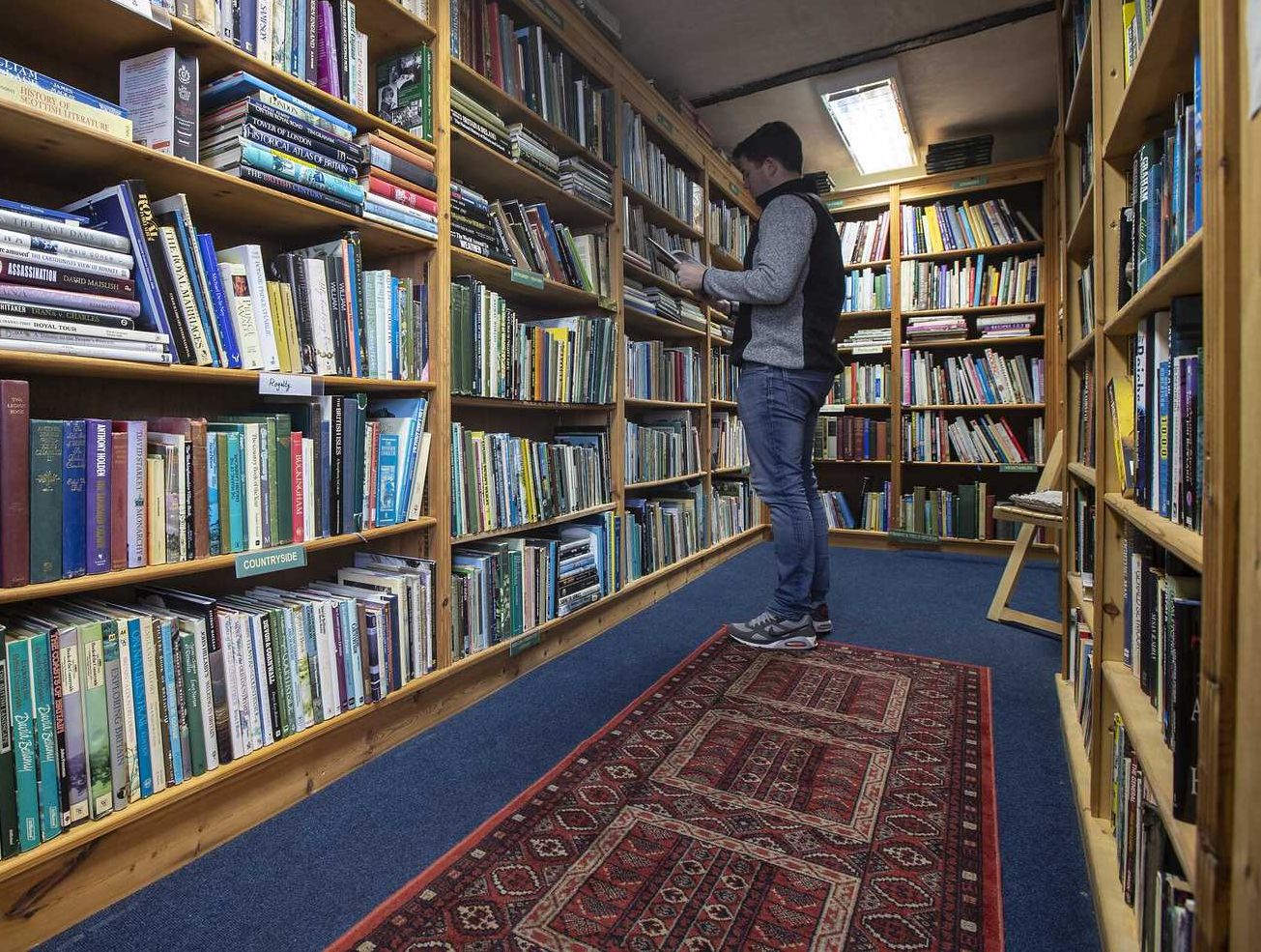McDonald's might not be the king of fast food for much longer.
McDonald's recently had decreased profits. New ideas and millennials just ruin everything, don't they?
It's hard to think of a name more synonymous with the word "empire" than McDonald's.
Even Emperor Palpatine from "Star Wars" would be jealous of their reach and global brand recognition. McDonald's happily sits on the throne as the undisputed king of fast food and one of the world's biggest and most successful businesses.
America's favorite road-trip bathroom. Photo by Justin Sullivan/Getty Images.
As of last year, McDonald's had 35,000 locations worldwide and operated in 119 countries. To put that in perspective, Burger King, McDonald's biggest competitor, has 13,000 locations in 79 countries. The sun truly never sets on the McDonald's empire.
However, like all empires, McDonald's reign will one day come to an end. In fact, although they still serve around 68 million customers a day, McDonald's is beginning to slip from their place at the top.
The Wall Street Journal shows how McDonald's sales are becoming more limp than a reheated french fry.
Since last July, McDonald's has seen some declines in sales.
That's right: As of last July, McDonald's showed 12 straight months of same-store decline. That represents the company's first full-year fall in 13 years, and although they've shown a small improvement this year (a 0.9% increase in domestic sales in the third quarter), you can be pretty sure they're not lovin' it.
So what exactly is going on here?
Well, on the business side, McDonald's has had a few mishaps. In Asia, where McDonald's earns nearly 25% of its revenues, health scares have had a harsh effect on the company's sales. Reports of contaminated beef and chicken in China caused sales to fall sharply over the summer. In Japan, sales were affected by a woman who reported finding a tooth in her french fries.
Yeah, you read that right. A tooth.
But McDonald's is also having trouble here in the homeland, and that's where the story gets interesting.
It's well known in the economics world that competition is what keeps American businesses strong. Having one or more rivals keeps a company creative, efficient, and forward-thinking. Every Coke needs its Pepsi, every Apple needs its Microsoft, and every Bernat Yarns needs its Lion Brand Yarn Company. (Just don't bring that frizzy Lion Brand twine around me.)
Anyway, I digress. For decades, McDonald's hasn't had much in the way of competition. Even other fast food restaurants have struggled to present a true threat to Mickey D's despite carving out massive markets of their own.
One reason for the cracks in the McDonald's empire may be their new competition.
The growth of middle-ground, casual fast-food dining options such as Chipotle, Five Guys, Smashburger, and Sweetgreen have offered customers their first real opportunity to walk away from McDonald's and never look back.
No one even knows what barbacoa is. Photo by Ben Popken/Flickr.
Plus, a new generation of eaters has started to demand different things from their fast-food experiences.
They're trading in their Big Macs for Smashburgers, and their Chicken Wraps for Chipotle burritos. They want customization, they want healthy and sustainable ingredients, and they want guacamole, dammit!
Research shows this: Millennials and younger eaters in America are asking for a lot more than special sauce. They want to eat fresh ingredients, and they want to customize. Just like McDonald's, a restaurant like Five Guys satisfies that primal American need for a burger and fries. But in contrast, Five Guys does it with ingredients that are apparently fresh and never frozen.
In fact, millennials think about food so differently that it's started to affect major processed food brands at the grocery store. Young shoppers are buying more fresh meat, produce, and dairy products. This has caused brands like General Mills, who produce mainly packaged food, to slip in sales as well.
McDonald's has tried to combat these changes in their own ways.
They've offered digital touch-screen kiosks in some stores that allow you to completely customize your burger.
I bet this thing will still forget your extra pickles. Photo by Tim Boyle/Getty Images.
They're offering all-day breakfast. They just announced $1 mozzarella sticks.
And they've made a few company-wide changes to become healthier, like abandoning margarine for butter and no longer selling chicken and beef raised with growth hormones.
For the record, McDonald's has tried in the past to appear more healthy, and they've had...
Photo by Reg Natarajan/Flickr.
...let's just say...
Photo by theimpulsivebuy/Flickr.
..."varying levels of success."
Unfortunately, McDonald's image is still hopelessly tied to unhealthy food. Despite their efforts to change their reputation, people who care about fresh food probably don't think they'll find it between a pair of sesame seed buns.
So, the next time someone makes fun of you for ordering your vegan, gluten-free, chia-seed kale shake, just smile to yourself.
Your healthy choices really could crumble an empire.
- Burger King is doing the unthinkable and openly asking people to buy food from McDonald's ›
- Woman eats food that pregnant women crave ›
- Video shows how Gummy Bears are made. - Upworthy ›
- Racist women told Burger King manager to 'go back to Mexico.' He gave them a lesson in civics instead. - Upworthy ›
- Mom makes adorable pancakes shaped like different dog breeds - Upworthy ›









 A woman reading a book.via
A woman reading a book.via A woman tending to her garden.via
A woman tending to her garden.via

 Cats can be finicky about how they're held.
Cats can be finicky about how they're held.  Squish that cat.
Squish that cat. 

 A person browses at The Open Book in Scotland.Photo Credit: Colin Tennant, Flickr
A person browses at The Open Book in Scotland.Photo Credit: Colin Tennant, Flickr The bedroom for rent above The Open Book in Scotland.Photo Credit: Colin Tennant, Flickr
The bedroom for rent above The Open Book in Scotland.Photo Credit: Colin Tennant, Flickr